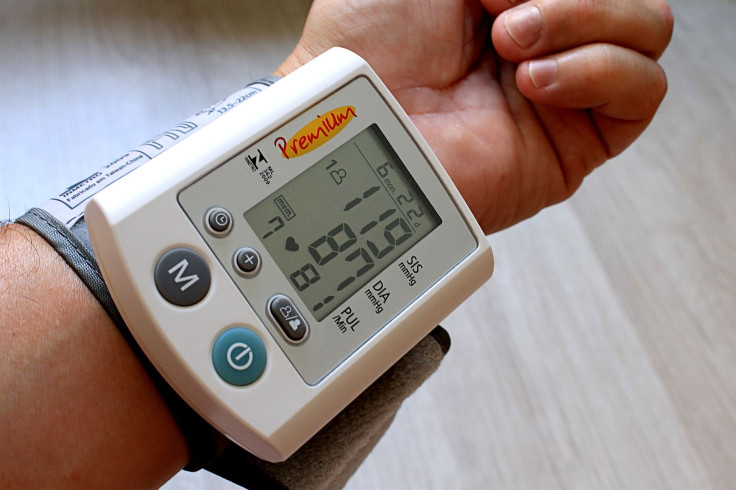Can Hypertension Be Treated? Researchers Find Potential New Way Of Treating High Blood Pressure

A potential new way of treating high blood pressure, or hypertension, has been identified by researchers at the University of Bristol and Afferent Pharmaceuticals. According to the researchers, the treatment can be done by targeting aberrant nerve signals in the carotid bodies, a small cluster of chemoreceptors and supporting cells located near the bifurcation of the carotid artery.
The research study on hypertension titled, "Purinergic receptors in the carotid body as a new drug target for controlling hypertension," was published Monday in the online edition of Nature Medicine. The study was led by Julian Paton, professor of physiology at the University of Bristol.
The new approach in treating hypertension aims to reduce nervous system activity from a sensory organ — the carotid body — which, when activated, can cause blood pressure to rise uncontrollably. This kind of a treatment can offer superiority over existing medications as it lowers blood pressure directly at a common source.
"With this research, we've validated P2X3 receptors as a novel drug target for the treatment of cardiovascular disease by demonstrating that blockade of these receptors with a selective antagonist controls carotid body activity," Dr. Angus Nightingale, a cardiology consultant who runs the specialist hypertensive clinic at the Bristol Heart Institute, reportedly said. "The question now is whether blocking these P2X3 receptors in humans will lower elevated blood pressure, and how we can best identify those patients with carotid body hyperactivity who are most likely to respond to treatment," added Nightingale, who is also the study's co-author.
According to Paton, who co-led the research with Dr. Anthony Ford, founder and chief scientific officer of Afferent Pharmaceuticals, the carotid bodies "sense chemicals such as oxygen in the blood. When oxygen levels fall, the carotid bodies become active and send signals to the brain that trigger increases in breathing and blood pressure."
The researchers collaborated to test whether an investigational drug candidate, MK-7624 (also known as AF-219) can stop this nervous activity from occurring, thereby lowering blood pressure.
"In healthy individuals, the carotid bodies have very low levels of activity," Paton reportedly said. "We discovered that these tiny organs become hyperactive in conditions of hypertension, generating what we have called aberrant or tonic discharge, which is sent into the brain regions controlling cardiovascular activity. In this way, changes within the carotid body may be a cause of high blood pressure and therefore represent a novel target for controlling blood pressure."
The current research was carried out by a team utilizing an established animal model of human hypertension. During this time, researchers discovered that the energy molecule ATP (adenosine triphosphate), a recognized common signaling nucleotide, was able to persistently activate the P2X3 receptor. This protein was upregulated five times in the carotid body in hypertension. Blood pressure fell significantly in hypertensive rats after the blocking of this receptor in the carotid body with MK-7264/AF-219.
"Crucially, unlike carotid body removal, the drug did not render the carotid body inoperable," Paton said. "Instead, it normalized its activity levels to those found in a normotensive state. Think of it in terms of a domestic fire alarm — it switches off after the smoke disappears, but the battery remains in place, meaning it can still respond in an emergency."
According to the U.S. Centers for Disease Control and Prevention, about 75 million American adults have high blood pressure, which is one in every three adults. It costs the nation nearly $50 billion every year. High blood pressure can also trigger heart and renal failure, and strokes, when poorly controlled.
"This approach may be the first novel anti-hypertensive treatment strategy in more than 15 years, and perhaps the first directed at a root cause of excessive sympathetic discharge to cardiovascular end-organs," Paton said about the new study. "This research was translational from molecule to medicine, and reflects the critical importance of integrative physiology as a subject. Our study was an inter-disciplinary team effort, and would not have been possible without close working with colleagues from the University of Bristol, University Hospital Trust Bristol, the University of Sao Paulo, Brazil, the University of Auckland, New Zealand, and Afferent Pharmaceuticals. Nor would it have been possible without funding from The British Heart Foundation and Afferent Pharmaceuticals."



























